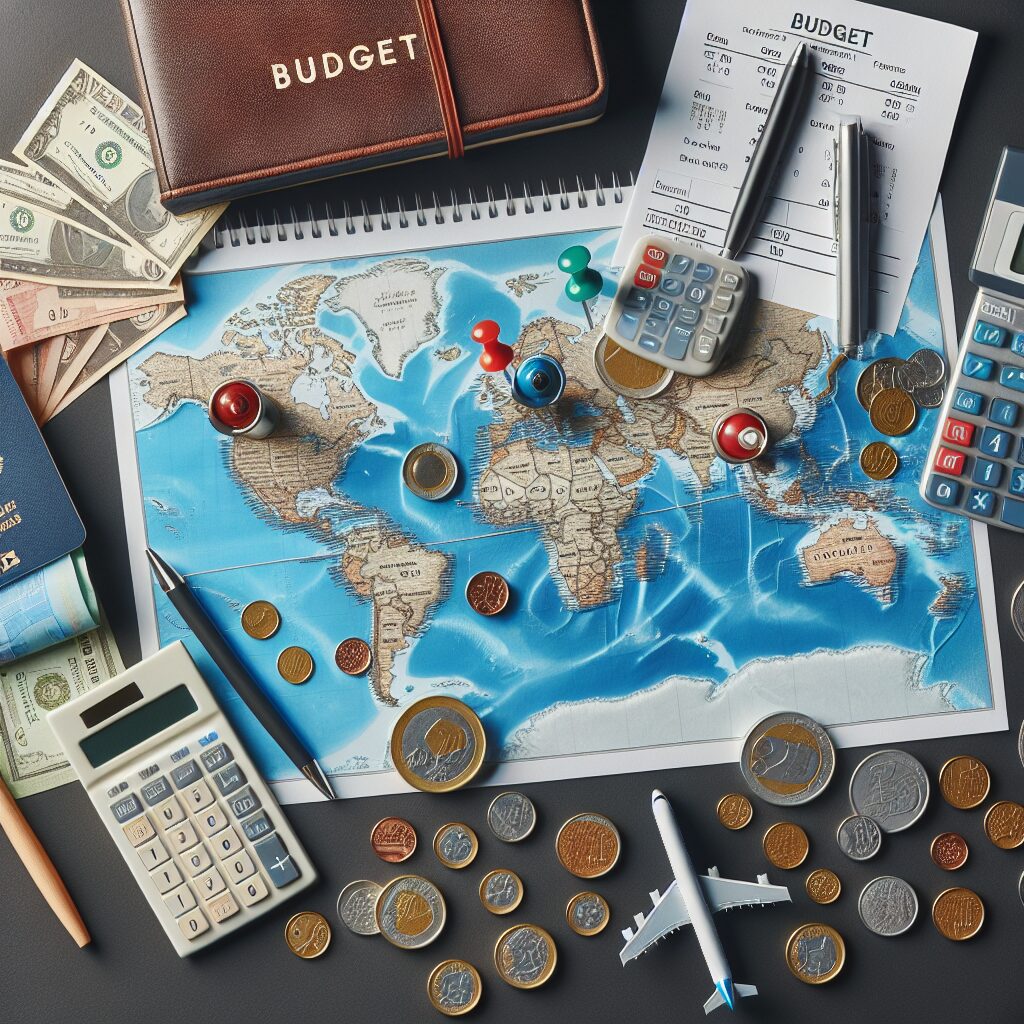Budgeting for Your Dream Cruise Vacation
Planning for a dream cruise vacation can be an exhilarating experience. The mere thought of setting sail on a luxurious ship, exploring picturesque destinations, and indulging in world-class amenities is enough to make anyone eager to hop on board. However, before you embark on this exciting adventure, it is crucial to carefully consider the financial aspect of your dream getaway. Budgeting plays a vital role in ensuring that you enjoy a stress-free and financially responsible cruise experience.
When it comes to budgeting for your dream cruise vacation, keep in mind that there are various factors that can have a significant impact on your overall expenses. From the cruise line and ship you choose to the cabin type and duration of the trip, each decision you make can affect your budget in different ways. Additionally, consider the cost of add-ons such as shore excursions, specialty dining, and spa services, as these can quickly add up and impact your overall spending.
Now that we understand the importance of budgeting for a dream cruise vacation, let’s delve into the key takeaways that will guide you in managing your finances effectively. By following these tips, you can ensure that you make the most of your budget and enjoy a memorable cruise experience without breaking the bank.
Key Takeaways
1. Estimate all costs: Before planning a dream cruise vacation, it is essential to estimate all costs involved, including transportation to the departure port, accommodation, dining, activities, and any additional expenses.
2. Research and compare prices: Take the time to research and compare prices from different cruise lines, as prices can vary significantly. Look for options that offer value for money and consider booking early or taking advantage of last-minute deals.
3. Set a budget and stick to it: Determine an overall budget for your cruise vacation, taking into account your financial situation and personal preferences. It’s important to stick to this budget and resist the temptation of overspending on unnecessary extras.
4. Plan for additional expenses: In addition to the main cruise cost, consider any additional expenses that may arise during the trip, such as gratuities, Wi-Fi charges, shore excursions, and onboard purchases. Make sure to budget for these extras accordingly.
5. Consider saving and payment options: If your dream cruise vacation requires additional savings, consider setting up a dedicated savings account and contributing regularly. Alternatively, explore payment options offered by cruise lines that allow you to pay in installments, making it more manageable to budget for your trip.
How Can I Optimize My Budget for a Dream Cruise Vacation?
1. Research Different Cruise Options
Before budgeting for your dream cruise vacation, it’s essential to conduct thorough research on various cruise options. Look into different cruise lines, itineraries, and ships to find the one that suits your preferences and budget. Consider factors such as destination, duration, onboard amenities, and activities offered to make an informed decision.
2. Set a Realistic Budget
Once you have an idea of the cruise options available, it’s time to set a realistic budget for your dream vacation. Consider all the costs involved, including cruise fares, taxes, port charges, gratuities, and any additional expenses such as excursions, onboard dining, and spa treatments. Allocate an amount for each category and stick to it.
3. Book in Advance
Booking your dream cruise vacation well in advance can help you secure the best deals and discounts. Cruise lines often offer early bird promotions or special rates for booking months ahead. Take advantage of these opportunities to save money on your cruise fare and additional expenses.
4. Opt for Off-peak Seasons
Traveling during off-peak seasons can significantly reduce the overall cost of your dream cruise vacation. Prices tend to be lower, and you may encounter fewer crowds, allowing you to enjoy a more peaceful and affordable experience. Consider scheduling your cruise during shoulder seasons or when schools are in session.
5. Choose the Right Cabin Category
Selecting the appropriate cabin category can make a notable difference in your budget. Interior cabins are usually the most affordable, while balcony or suite cabins come at a higher price. Assess your priorities and decide whether having a view or extra space is worth the additional cost. Keep in mind that you’ll be spending most of your time on exciting activities around the ship and off-shore excursions.
6. Plan and Track Onboard Expenses
To manage your budget effectively during the cruise, plan and track your onboard expenses. Set daily spending limits for activities, drinks, souvenirs, and extras. Take advantage of any included meals and activities to minimize additional costs. Most cruise lines provide a folio or account summary, allowing you to monitor your expenses regularly.
7. Research Port Excursion Options
While planning your dream cruise vacation, research the excursion options available at each port of call. Compare prices, read reviews, and consider booking independently rather than through the cruise line to save money. However, ensure you allow ample time for the excursion, considering factors like transportation and return to the ship.
8. Pack Smartly and Avoid Overpacking
Carefully selecting what to pack can help you avoid excess baggage fees charged by airlines or cruise lines. Make a list of essentials, pack versatile clothing items, and check for any dress codes onboard or for formal evenings. Additionally, bring your own toiletries or other necessities to avoid purchasing them at higher prices during the cruise.
9. Look for Additional Discounts
Search for additional discounts that can further optimize your budget for a dream cruise vacation. Check if you qualify for any promotions such as senior citizen discounts, military discounts, or loyalty program benefits. Additionally, consider booking through a travel agent who may have access to exclusive deals and offers.
What Are Some Tips for Budgeting for a Dream Cruise Vacation?
1. Create a detailed spreadsheet to track your budget and expenses throughout the planning and cruise phases.
2. Consider saving money by booking a repositioning cruise, which often offers lower fares as the cruise line moves the ship to a different region.
3. Look for cruise bundle deals that include pre- or post-cruise accommodations and transportation to further stretch your budget.
4. Set aside a portion of your budget for unexpected expenses or emergencies during the cruise.
5. Consider using a travel rewards credit card to earn points or miles that can be redeemed towards future cruises or related expenses.
Frequently Asked Questions about Budgeting for Your Dream Cruise Vacation
1. How much should I budget for a dream cruise vacation?
There is no one-size-fits-all answer to this question as the cost of a cruise vacation can vary greatly depending on factors such as the duration of the cruise, the cruise line, the cabin type, and additional expenses such as excursions and onboard activities. It is recommended to set aside a budget of at least $100 to $200 per person per day for a comfortable cruise experience.
2. How can I save money on a dream cruise vacation?
There are several ways to save money on a dream cruise vacation. Consider booking during off-peak seasons or taking advantage of early booking discounts. Look out for promotions or package deals offered by cruise lines. Additionally, be mindful of onboard expenses by pre-purchasing drink packages or choosing free dining options instead of specialty restaurants.
3. Should I book directly with the cruise line or through a travel agent?
Booking directly with the cruise line can provide you with more control and direct customer support. However, a travel agent specializing in cruises can often offer exclusive deals, provide expert advice, and assist you with the entire booking process, making it a convenient option.
4. Are there hidden expenses I should be aware of when budgeting for a cruise vacation?
While the base cost of the cruise covers accommodation, meals, and most onboard activities, there are some additional expenses to consider. These can include gratuities, alcoholic beverages, specialty dining, wifi, spa services, and shore excursions. It’s important to factor in these expenses when budgeting for your dream cruise vacation.
5. Can I finance my dream cruise vacation?
Many cruise lines offer financing options through partnerships with third-party providers. These financing plans can allow you to spread out the cost of your cruise vacation over several months, making it more manageable for your budget. However, it’s essential to assess the interest rates and any associated fees to ensure it is a financially wise decision.
6. Are there any ways to get discounted or upgraded cabins?
Yes, there are strategies to potentially secure discounted or upgraded cabins. This includes being flexible with your travel dates or being open to last-minute deals. Following cruise lines on social media or subscribing to their newsletters can also provide access to exclusive promotions, such as cabin upgrades or onboard credits.
7. Is travel insurance necessary for a cruise vacation?
While travel insurance is not mandatory, it is highly recommended. Travel insurance can protect you financially in case of unforeseen circumstances such as trip cancellations, medical emergencies, or lost luggage. It is advisable to carefully read the terms and conditions of the insurance policy to ensure it covers your specific needs.
8. Should I bring cash or use credit cards on the cruise?
Using credit cards on the cruise is convenient as most cruise lines have a cashless system where all onboard purchases are charged to your cabin account. However, it is advisable to carry some cash for tips or small purchases when disembarking at ports where credit cards may not be widely accepted.
9. Can I save money by booking excursions independently instead of through the cruise line?
Booking excursions independently can sometimes result in cost savings. However, it’s crucial to research the reliability and safety of the excursion providers. Additionally, consider the time constraints and the risk of potential delays that might impact the cruise ship’s departure if you choose to book independently.
10. What are some ways to earn onboard credits or benefits?
Earning onboard credits or benefits can be achieved by joining loyalty programs offered by cruise lines. These programs usually reward frequent cruisers with perks such as onboard credit, complimentary dining, spa discounts, or even priority embarkation. It’s worth exploring different cruise lines’ loyalty programs to maximize your benefits.
Final Thoughts on Budgeting for Your Dream Cruise Vacation
Planning and budgeting for your dream cruise vacation is an essential step to ensure a stress-free and enjoyable experience. By setting a clear budget, researching available deals, and carefully considering additional expenses, you can make informed decisions that align with your financial goals. Remember, with proper planning, your dream cruise vacation can become a reality without breaking the bank.
While budgeting is crucial, it’s also important to allow some flexibility for unexpected expenses or indulgences. A dream cruise vacation offers a unique opportunity to explore different destinations, indulge in gourmet cuisine, and partake in exciting activities. By finding the right balance between budget-friendly choices and memorable experiences, you can create lifelong memories while keeping your finances in check. Bon voyage!



